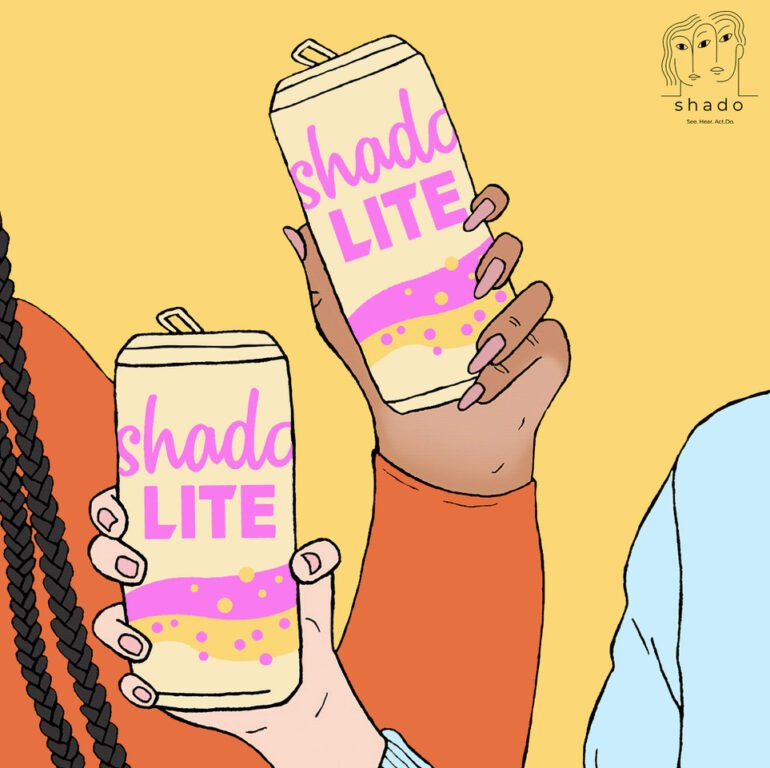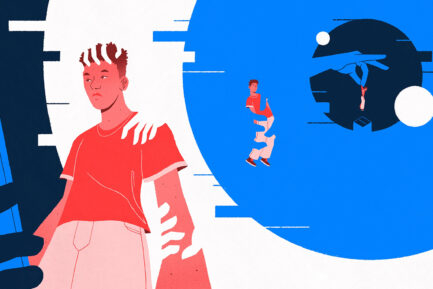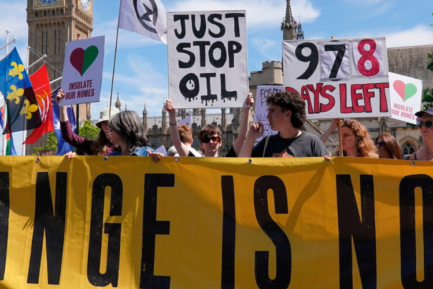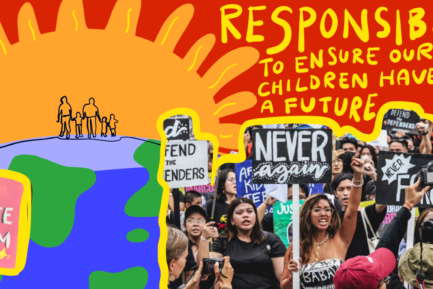Welcome to shado-lite

Join our hosts Larissa Kennedy (@larissakennedy) and Zoe Rasbash (@zorasbash), as they introduce themselves and the podcast. They will be using this podcast to navigate the big issues on your feed, moving from apathy and overwhelm to collective action and hopeful pathways forward.
We’re not claiming to be experts in these issues – let’s remove the dichotomy of student versus teacher – but instead we want to take listeners on a collective journey of learning. Give it a listen and share your thoughts!
Listen on Spotify or Apple Podcasts:
Episode Info
Contributing SHADO editor Samara Almonte is back to discuss the power of storytelling through a First Nations worldview with distinguished professor Larissa Behrendt AO. Larissa has a legal background with a strong track record in the areas of Indigenous law, policy, creative arts, education and research. She is a Native Title holder and member of the Yuwaalaraay (yuwalarai) Euahlayi Aboriginal Corporation and is also a member of the Metropolitan Local Aboriginal Land Council. Larissa is also an award-winning author, filmmaker and host of Speaking Out on ABC Radio. In this episode, Larissa shares about her upbringing as an Aboriginal woman and how storytelling has been a practice for cultural preservation, healing and advocacy for her.
Additional Resources:
Twenty-Four Exceptional Films by Indigenous Australian Filmmakers That You Can Stream Right Now
Vision Maker Media – The Premiere Source of Media By and About Native Americans
Episode Info
Contributing SHADO editor Samara Almonte is back to discuss the power of storytelling through a First Nations worldview with distinguished professor Larissa Behrendt AO. Larissa has a legal background with a strong track record in the areas of Indigenous law, policy, creative arts, education and research. She is a Native Title holder and member of the Yuwaalaraay (yuwalarai) Euahlayi Aboriginal Corporation and is also a member of the Metropolitan Local Aboriginal Land Council. Larissa is also an award-winning author, filmmaker and host of Speaking Out on ABC Radio. In this episode, Larissa shares about her upbringing as an Aboriginal woman and how storytelling has been a practice for cultural preservation, healing and advocacy for her.
Additional Resources:
Twenty-Four Exceptional Films by Indigenous Australian Filmmakers That You Can Stream Right Now
Vision Maker Media – The Premiere Source of Media By and About Native Americans
Episode Info
In this episode, contributing shado editor Samara Almonte is back to connect with Natasha Berting, a designer and writer from Bali, Indonesia and the communications editor for What Design Can Do (WDCD). WDCD is an international organisation that seeks to accelerate the transition to a sustainable, fair and just society using the power of design. Samara and Natasha discuss how WDCD works to address system issues at large, for example through circularity, as a way to address the climate crisis. But where does the concept of circularity come from and who should benefit from it?
To learn more about circularity, visit the following resources:
Flourish Systems Change Michael Pawlyn & Sarah Ichioka
Sustainable & Product Design - Taina Campos
Sanitary Napkins Manufacturer – Saathi: Eco-friendly, period
What Design Can Do (@whatdesigncando) • Instagram photos and videos
Episode Info
We always come back to how everyone deserves a right to home: somewhere safe and dignified to live. And over this season, shado-lite has traversed histories and geographies to understand how people have and still are fighting for that basic right: from Indigenous communities reclaiming their land, to the fight for Caribbean communities to access their beaches, to squatters in Brixton housing the homeless in unused buildings.
Inspired Amarha Spence’s use of her ‘Grandads house’ to guide her work on building life-affirming infrastructures for her community and beyond, Zoe and Larissa are asking how expanding our concept of homes can build healthier and happier movements and imagine warm, kind and fair futures.
Episode Info
On this week’s episode we are joined by Sarona Bedwan, on behalf of Makan, a Palestinian-led transformative education organisation that strengthens voices for Palestinian rights. Continuing on our series centred on the concept of home, this time we’re talking about how Israeli settler colonialism not only violently displaces Palestinian people from their homeland but commits psychological and ecological violence in efforts to sever the connection Palestinians have to land that they, and their ancestors, have cultivated and lived in relationship with for generations. Amid the ongoing genocide of the Palestinian people, it is more important than ever that we are deepening our knowledge of how settler colonialism operates, the resistance of Palestinians themselves, and how this can inform our action in solidarity with the Palestinian people. FREE FREE PALESTINE!
References:
Makan - https://www.makan.org.uk/
“Prisoners are the Compass of Our Struggle”: why the release of Palestinian prisoners is central to our liberation - https://shado-mag.com/opinion/prisoners-release-palestine-israel-war/
The environmental cost of Western greed in Palestine and the Democratic Republic of Congo
How the British Museum’s partnership with BP has shown the world its allegiance to imperialism at any cost
Other shado articles on Palestine - https://shado-mag.com/discover/palestine/
Explainer TikTok: No such thing as an ‘innocent settler’
More references to come soon!
Episode Info
We’re talking about the importance of home this season, and it’s crucial we understand the impact of homeless and landless peoples on the world. This week we’re sitting down with Dandara, representing the MST or Brazil’s Landless Workers Movement - one of the largest peoples movement in Latin America, celebrating 40 years of action.
Since 1984, the movement has lead more than 2,500 land occupations with 370000 families that are today settled on 7.5 million hectares of land they won as a result. The impact on Brazilian land and agrarian policy is unparalleled - and we have to ask Dandara, what can the rest of the world learn?
References:
People's Agrarian Reform: An Alternative to the Capitalist Model, João Pedro Stedile and Osvaldo LeónHistory of the MSTPopular Agrarian Reform and the Struggle for Land in Brazil
Episode Info
Okay but run it all back - for years feminists have asked us to understand the home as a place of work, as a place where labour is enacted for free everyday. The Wages for Housework movement launched in 1972 united women across geographies and lived experience with the idea that housework is not ‘innately womens work’ nor an ‘act of love’, but labour which capitalism depends on to thrive and therefore deserves a wage. Women deserve to get paid for all the invisible work that the world needs to function: cleaning, cooking, having sex and raising the workforce.
This week, Zoe and Larissa are returning to this foundational feminist movement to ask: should we still be fighting for this? How far have we come in 50 years?
Resources:
Selin Çağatay (she/her/hers) (2023) “If women stop, the world stops”: forging transnational solidarities with the International Women’s Strike,
International Feminist Journal of Politics, How the Caribbean influenced domestic work and the ‘international parliament of labour’Amelia Horgan, 2021.
Creeping and Ameliorative Accounts of "Work". Theory & Event "Wages for housework means wages against heterosexuality": On the Archives of Black Women for Wages for Housework and Wages Due Lesbians Beth Capper, Arlen Austin
Episode Info
Can the club be a home? This week, Leticia Sánchez Garris joins the podcast to chat about her work creating cultural events and club nights for the African diaspora in Buenos Aires. Leticia founded Afro-hunting in 2017, a cultural movement which brings together and makes visible the beating heart of music, art and culture lead by and for those of afro-descent.
How does coming together to experience joy help us build solidarity to get through the hard times? How has culture made the afro-histories of Buenos Aires visible?
Episode Info
As far back as we can go, communities have been on the move - migrating due to seasons, changing environments, cultures. Yet since 1500s in the UK, the state has clamped down on mobile communities, creating laws specifically to expel Gypsy, Roma and Traveller groups or force them to assimilate to static ways of living.
In this episode Larissa and Zoe get heated about the importance of the Right to Roam for all of us, how living on the move is resistance and ask WHY is the state so scared of mobile communities??? Digressions include whether the #VanLife girlies will join the revolution.
References:
What is Gypsy and Traveller resistance? (2023) Chelsea McDonagh
The PCSC Bill has Failed Gypsies and Travellers - so where do we go next? (2022) Chelsea McDonagh
How the police Bill targets Gypsies Roma and Travellers (2021) Charlotte Powell
Land Rights and Nomadic Populations: Indigenous Perspectives (2019) Karen Braun and Jocelyn Davies
Beyond Borders: A deep dive into the nomadic way of life (2022) David Farley
The Politics of the Nomad (2009) Yossarian
The Right to Roam: Travellers and Human Rights in the Modern Nation-State (2010) Dualta Roughneen
Episode Info
This week Shado-lite hosts the incredible Samara Almonte, fellow shado-editor, storyteller, organiser, urban planner and creative director of Raíces Verdes podcast. Intended to be a chat on how language informs relationship to land and environment, the discussion spirals into navigating our own spiritual homecomings, Indigenous futurisms and how we can all uplift the fight for Indigenous communities self-determination and landback.
Tune in to hear Larissa and Zoe processing Samara’s wisdom in real time: how do we reconnect meaningfully with the earth? And who benefits when we don’t?
References:
Raíces verdes Centric LabOctavia Butler, Parable of the Sower
The Will to Change, Bell Hooks
Shado-mag Bookshelf: World Building and Imagination, How Fiction Can Free Us
Episode Info
Community organisers resisting environmental colonisation in Jamaica are fighting for legal beach access and environmental personhood for beaches. Co-hosts Zoe and Larissa explore the Jamaica Beach Birthright Environmental Movement and similar campaigns in Barbados, Mexico and beyond, that have sought to reclaim beaches. This episode is a love letter to all those resisting the commodification of beaches, challenging neocolonial tourism, fighting for workers’ rights and environmental protections on beaches. Have a listen to get inspired by community-led campaigns that connect the dots between beach access, colonialism, race and class!
References:
What’s the Caribbean without its beaches? But the people are losing access to them (2023)
Kenneth MohammedWhy Can’t Jamaicans Access Their Own Beaches? Al Jazeera (2023)
Privatisation of beaches: When access to nature is reserved for the rich (2024)
Mariarcangela AugelloPrivate beaches are symbolic of Lebanon's economic crisis (2022)
Laure StephanLebanon loses its beaches to privatisation (2015)
International Collective in support of FishworkersRich investors exposed for trying to get Lahaina wildfire victims to sell land amid disaster (2023)
Ariana Baio‘The beaches belong to the people’: inside Puerto Rico’s anti-gentrification protests (2022)
Coral Murphy CarosDamion Coombs (2022)
Beach Access and Racism in America, (2021)
The Exclusion of the Citizen from Jamaica's BeachesPugh, Jonathan (2013)
Speaking Without Voice: Participatory Planning, Acknowledgment, and Latent Subjectivity in BarbadosCarla Guerrón-Montero (2006)
“Can’t Beat Me Own Drum in Me Own Native Land”Christine Toppin-Allahar (2015)
“De Beach Belong to We!” Jamaica’s Apartheid-like Beaches (2022) Andrea Williams GreenPublic Access Beach (2010) Anna Lee Davis
Episode Info
From Tuvalu to Saint Vincent, from South Pacific to the Caribbean, small islands on the frontlines of climate change are demanding climate justice. Those that call these islands home are fighting hard to protect their community and cultures from climate disaster.
Kato Ewekia, leader of Save Tuvalu and the first youth Tuvaluan delegate to participate in the United Nations Conference of the Parties, joins Zoe and Larissa to share how his island home is changing, what Tuvalu want the rest of the world to understand and why you shouldn’t wear flip flops when visiting Glasgow in November. Tune in for a curiously hopeful episode and instructions for living our lives more generously.
Episode Info
Last season, the need for housing justice - in all its forms - came up so much that we’ve dedicated an entire season to it. From migrant communities building home away from home, to indigenous communities defending their homes, the concept of home has so much to teach us.
To kick us off, co-hosts Zoe and Larissa are talking squatting: and where better to start than Olive Morris, the Brixton Black Women’s Group, the Brixton Black Panthers and an occupied launderette in Brixton? (It's a South London massive!!) But our conversation took us from South of the Thames to the Rozbrat squat in Poland and the multiple interconnected squats of the #RightsToTheCity movement in Brazil. Can we look to the squat as a place of ‘collective worldmaking’?
Resources:
Remembering Olive MorrisPolanska, D.V., Piotrowski, G., (2015).
"The transformative power of cooperation between social movements: Squatting and tenants' movements in Poland" Zhang, Y. (2021).
Rightful squatting: Housing movements, citizenship, and the "right to the city" in Brazil. Rozbrat Squat (Poznan, Poland)
Prestes Maia Squat (Sāo Paulo, Brazil) To All the Blocks I’ve Loved Before (2023)
Simmone Ahiaku Spotlight on London’s Radical Herstory: The Brixton Black Women’s Group (2020)
Past TenseCounter hegemony, popular education, and resistances: A systematic literature review on the squatters' movement (2022)
Julia Ballesteros-Quilez, Pablo Rivera-Vargas and Judith JacovkisOur house: why protecting the right to squat is a defence of radical Black history (2021)
Lisa Insana The Autonomous City: A History of Urban Squatting (2017)
Alexander Vasudevan Spotlight on London’s Squatted Streets: Villa Road, Brixton (2020)
Past Tense Finding a Home: how artists and collectives occupy space (2023)
Kieran Yates Squatting as tactics for creative resistance and transformation: The experience of a Brazilian housing occupation (2021) Juliana Canedo and Luciana Andrade
Episode Info
In this episode, contributing SHADO writers, Samara Almonte and Rachel Edwardson discuss the importance of indigenous storytelling in filmmaking as a tool for cultural preservation and revitalization.
Rachel Edwardson is an Iñupiaq/Norwegian/Sami social justice filmmaker and educator from Utqiagvik (Barrow), Alaska. She is a Producer and Impact Producer on the film In My Blood It Runs directed in collaboration by Maya Newell and produced with Sophie Hyde and Larissa Bahrendt. Alongside film making Rachel has been honored to work in education reform with communities across Alaska and Australia. She works closely with her husband and Human Rights lawyer/filmmaker and educator, David S Vadiveloo, across Australia and Alaska.
Samara Almonte is part of the Michoacán diaspora, raised between the lakes and tierra caliente regions of Michoacán, Mexico and occupied Coast Salish territory or the Pacific Northwest. She identifies as a P’urhepecha descendant on a journey of reconnecting with her ancestors. Samara is the director of Raíces Verdes (Green Roots), a multimedia platform dedicated to archiving and sharing the experiences of Black, Indigenous, People of Color across diasporic experiences reconnecting with their “green roots”.
Resources:
In My Blood It Runs: a fight for the revitalisation of First Nation culture and histories
Why are you interviewing my Aapa: filmmaking and empowerment
Episode Info
In this episode, Samara Almonte, a contributing editor for SHADO, discusses the power of intergenerational healing and Indigenous stewardship with The Seed Keeper author, Diane Wilson. Diane Wilson is a Dakota writer and educator, who has published four award-winning books as well as essays in numerous publications. Wilson’s novel, The Seed Keeper, received the 2022 Minnesota Book Award for Fiction. Wilson is the former Executive Director for Dream of Wild Health, an Indigenous non-profit farm, and the Native American Food Sovereignty Alliance, a national coalition of tribes and organizations working to create sovereign food systems for Native people. Wilson is a Mdewakanton descendant, enrolled on the Rosebud Reservation.
Samara Almonte is part of the Michoacán diaspora, raised between the lakes and tierra caliente regions of Michoacán, Mexico and occupied Coast Salish territory or the Pacific Northwest. She identifies as a P’urhepecha descendant on a journey of reconnecting with her ancestors. Samara is the director of Raíces Verdes (Green Roots), a multimedia platform dedicated to archiving and sharing the experiences of Black, Indigenous, People of Color across diasporic experiences reconnecting with their “green roots”.
References:
https://www.dianewilsonwords.com/
https://dreamofwildhealth.org/
Episode Info
This season has discussed A LOT of stuff - from unpicking climate anxiety to the issues of carceral feminism. So Larissa and Zoe sit down to map out the connections between all of these issues. How are these systems connected and what might be the leverage points for change? When the scale of these issues can be super overwhelming, what are actions we can take to resist and rebuild?
References:
Free Black University - https://www.freeblackuni.com/
Black Earth: Resistance Anti Racism and the Environment - https://www.tiatafahodzi.com/black-earth
Episode Info
Warning: this is an unbelievably straight episode. This week the girls are tackling ‘the apps’: are they making love and dating harder, or are they simply reflecting already broken society? How far can we blame big tech for the state of dating right now? And can we even be bothered to resist it?
Zoe and Larissa talk dating horror stories, politics of desirability and why straight mens dating profiles really are just for other men. Tune in for two 5’11 queens who cannot make up their mind on how we might change modern dating to be less BLEUGHJ…
References:
Alfie Bown, Dream Lovers: The Gamification of relationships
Dr. Jacqueline Ristola || Queering the Metaverse
Zoe Rasbash, Love in the age of platform capitalism
Fope Ajanaku, Does radical vulnerability hinder us in the digital arena of love?
The Singles Reports
bell hooks, All About Love: New Visions
Shado Bookshelf: Love Beyond the Binary
Clotilde de Maricourt et al, #MeToo or #MenToo? Expressions of Backlash and Masculinity Politics in the #MeToo Era
Chris Haywood, Men, Masculinity and Contemporary Dating
Episode Info
We know that many feminisms do not truly resist oppression in all its forms [insert TERFs and boss babes here] Another group of feminists flopping on the ‘radical reimagination’ front are carceral feminists.
Our guest this time, abolitionist revolutionary, author and lecturer Dr Aviah Sarah Day, describes the term carceral feminism as “a critique about a particular branch of the feminist movement”. With Aviah’s knowledge and experience in the movement, we get into why investing in policing and punitive responses to gendered violence will not save us!
Somehow the tech failed us on the recording of this episode (boo, hiss!) so we lost the second half of our chat with Aviah. Co-hosts Zoe and Larissa have wrapped up the chat by reflecting on some of the parts of the conversation that we lost.
In the episode, we discuss some examples of gendered and sexual violence, including r*pe, so if you’d like to skip that part of the conversation, hit pause at 32:14 and resume at 32:44. Masses of love and solidarity to any survivors listening.
References:
Dr Aviah Sarah Day (2022) Why police will never be the answer to gendered violence
Aviah Sarah Day and Shanice Octavia McBean (2022) Abolition Revolution
Ruth Wilson Gilmore (2022) Abolition Geography: Essays Towards Liberation
Mariame Kaba (2022) We Do This 'Til We Free Us: Abolitionist Organizing and Transforming Justice
Oonagh Ryder and Mo Mansfield (2018) “Just Paint the Walls Pink”: Gender, Prison and Carceral Feminism
Actions:
Find your local CopWatch group
Use Abolitionist Futures’ Framework differentiating between reformist reforms and abolitionist steps in UK policing
Episode Info
FOIs conducted by the Runnymede Trust reveal that there are almost 1000 police officer operating in UK schools, and there are plans to hire more. Children and young people are being robbed of their childhoods through criminalisation and surveillance in schools.
Why do the police appoint “Safer Schools Officers” when we know that police make marginalised children unsafe? Why are surveillance technologies being rolled out in schools? Why is community concern about all of this ignored? Co-hosts, Zoe and Larissa, ask all these questions and more on this week’s episode. Have a listen to learn more about the issues we’re facing and the orgs on the ground that give us hope!
References:
The Runnymede Trust (2023) Over-policed and Under-protected Report
No More Exclusions (2021) School Exclusions During the Pandemic: Why we need a Moratorium
The 4 Front Project
Safeguarding, Surveillance and Control: School Policy and Practice Responses to the Prevent Duty and the ‘war on terror’ in the U.K. Necla Acik, Jo Deakin and Bob Hindle 2018
Curating Risk, Selling Safety? Fear of Crime, Responsibilisation and the Surveillance School Economy Emmeline Taylor
Surveillance Won’t Protect Students with Chris Gilliard, Tech Won't save us Podcast
Articles to read:
If exclusion is retribution, abolition in education is freedom! - Shado Magazine
Obedience, Oppression and Capitalism: why we need to address the legacy of schools - Shado Magazine
Episode Info
Have you ever felt hopeless? Like everything is too complicated? Society is too hard to change?
Then maybe you need a bit of Solarpunk in your life, an art aesthetic / literary genre / political movement, proposing a radical different way of living and being.
In this episode, co-host Zoe fangirls over Andrew Sage, an artist, YouTuber and organiser on solarpunk and leftist politics. Andrew deftly diagnoses our inability to radically change society is rooted in that we don’t know what alternative we are proposing. Solarpunk provides a vision for us to work towards, and values to build sustainable and successful movements for change.
In the words of Toni Cade Bambara, “the role of the artist is to make the revolution irresistible.”
Check out Andrews YouTube here YouTube.com/Andrewism & Patreon here patreon.com/saintdrew
References:
SOLARPUNK 2021 - A Collaborative Art Project, Andrewism
The Hope of Solarpunk (2021) Andrew Sage and Sabrina Gaveard, Shado
What is Solarpunk (2023) Andrew Sage and Wei wu, Shado
Building Utopia Pt 3: Harmony Between Humanity, Technology, and Nature (2022) Jank
Tools for Conviviality (1973) Ivan Illich
Solaprpunk reading list:
Walk Away (2017) Cory Doctorow
The Dispossessed (1974) Ursula K. Le Guin
A Psalm for the Wild-Build (2021) Becky Chambers
Ecotopia (1975) Ernest Callenbach
Episode Info
Hello, we are scared of Big Tech and iPhones are cursed!
This ep the girls are getting into the dark side of Apple: how was it able grow so exponentially in the noughties?
We spin out into history of Chinese labour policy and emerging fin-tech in Africa, and the incredibly hard to pronounce ‘algorithmic colonialism’. The girls struggle to get their head around these massive supply chains that produce the little computers we’re all so addicted to. Tech girlies we need your advice, how do we bring down silicone valley? Or at least make them less evil??
References:
Proletarian China: A Century of Chinese Labour The Foxconn Suicide Express, (2022) Jenny Chan
Foxconned labour as the dark side of the information age: Working conditions at Apple’s contract manufacturers in China. Communication, Capitalism & Critique, (2013) Sandoval, Marisol. (2013)
Tech firms failing to address forced labour in supply chains (2010) Sebastian Klovig Skelton, Computer Weekly
Apple supplier Lens Technology accused of using forced labour in China (2021) Reed Albergotti, Washington Post
USA: Apple agrees to human rights and labour policy audit following investor pressure (2023) Aislinn Murphy, Business and Human Rights Resource Centre
Tech giants’ pivot out of China can usher in a human rights reset (2023) Michael Caster, Al Jazeera
Abeba Birhane ( Algorithmic Colonization of Africa by Abeba Birhane
Shakir Mohamed, Marie-Therese Png & William Isaac (2020) Decolonial AI: Decolonial Theory as Sociotechnical Foresight in Artificial Intelligence
Kai-Fu Lee (2017) The Real Threat of Artificial Intelligence
Episode Info
In this episode, we’re joined by Justin Sardo, a member of the collective A Growing Culture to talk about the food sovereignty movement. 3 years on from the outbursts of solidarity we saw with the Indian Farmers’ Movement, we need to sustain our solidarity with farmers, foresters, land-workers, peasant-led and indigenous-led land and food rights campaigns. The dominant food system separates us into food producers or consumers, and takes power away from us all.
Take a listen to hear all the mic drop moments from Justin, to hear us drag capitalism (again!) and to learn about movements on the ground in The Philippines, Brazil, the US, the UK and beyond.
References:
What you eat matters more than you think it does
“Africa is being recolonised”: Seed sovereignty as a form of resistance
Farmerama Podcast (Spotify)
Episode Info
This is a really heavy episode, but I swear we find a place of hope at the end.
Coming out of the pandemic, we saw how ethnic minority groups across the western world were being impacted at much higher rates and levels of severity than white people. Larissa and Zoe wanted to look at why this happened, how did we get here and how do we build a health system which works for everyone, not just middle-class white people. The gals cover the history of medical racism (spoiler: weaponisation of the bible) and the people on the ground building something better (spoiler: they're incred).
References:
Reproductive Justice Initiative, Manna Mostaghim and Luci Pina (2023) What is ReproductiveJustice?
Brett. Milano (2021)With COVID spread, ‘racism — not race — is the risk factor’
Udodiri R. Okwandu (2019) A Study in Medical and Scientific Racism In America
Action - endorse the charter: The People’s Charter for Health - https://phmovement.org/the-peoples-charter-for-health
Action - follow: Health for a Green New Deal - https://twitter.com/Health4GND
Episode Info
Of a survey of 10,000 children across 10 countries, 75% said they believe the future is frightening. Across the world, anxiety about the climate crisis is no longer a fringe issue. But historically, anxiety has served to alert humans to danger, to help us know when to act. Is eco-anxiety fuel for us to act on the climate crisis?
Co-host Zoe sits down with Tori Tsui, climate justice and mental health campaigner and author of new book It's Not Just You, to ask: is a bit of eco-anxiety is a good thing? Tori says: think bigger.
References:
Its Not Just You, Tori Tsui
Climate Anxiety: An Illness of the System, Ayisha Siddiqa
No Good Alone, Rayne Fisher Quann
Climate anxiety in children and young people and their beliefs about government responses to climate change: a global survey, Caroline Hickman et al.







